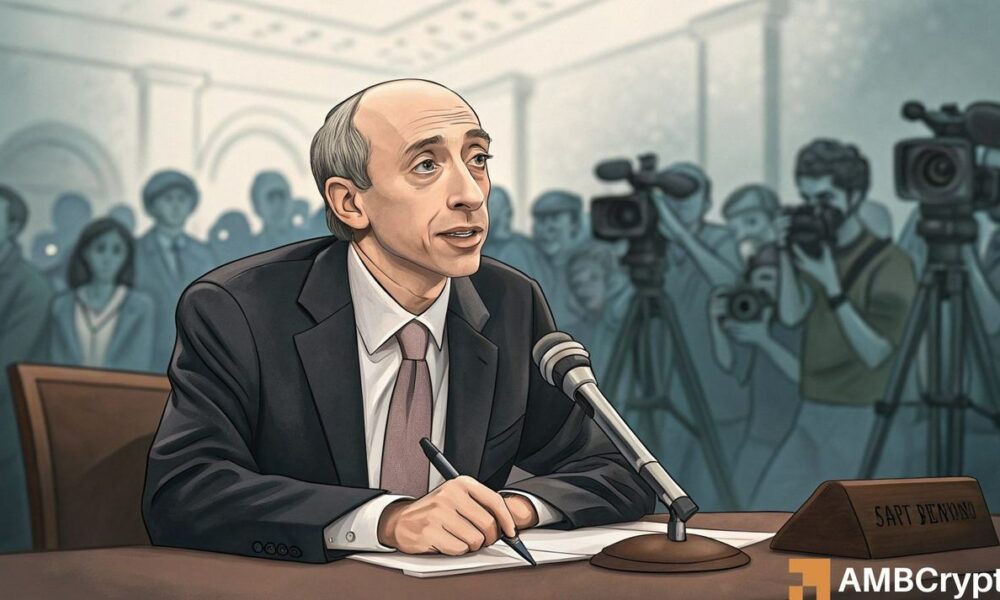- Gary Gensler claimed that most altcoin projects without fundamentals would fail.
- The outgoing president was proud of his heritage and called for appropriate disclosures in this space.
In a recent interview with Bloomberg, Gary Gensler declared,
“This area is Bitcoin, Ethereum and everything else… These 10,000 to 15,000 crypto projects, a lot of them will not survive. It’s like a venture capital investment and a lot of small pump and dump projects.
Will the altcoin sector fail?
Gensler noted that markets are influenced by fundamentals and sentiment. However, most 10K-15K altcoin projects rely solely on sentiment and might not survive. He added that the industry has several bad actors, citing Do Kwon, Sam Bankman-Fried and Binance founder CZ.
While this may be true, there are also many projects with strong product-market fit (PMF), such as Solana’s Hivemapper (the Google Maps equivalent) and cheaper cross-border transactions via the Tron and Ton blockchains.
However, under Gensler’s leadership, there has been no regulatory clarity on the status of these networks.
Instead, the regulator opted for an enforcement action approach that insiders say stifled innovations and even fueled Donald Trump’s presidential victory after he embraced the industry.
At the time of writing, lawsuits are pending against Coinbase, Binance, Ripple Labs, and other crypto companies, including Uniswap, which has been notified of a possible indictment.
As a result, President Gensler is considered an “enemy” by most of the crypto community. However, he was proud of its heritage and enforcement, saying the industry is “built on non-compliance”. He declared,
“It’s a field (the crypto industry) built on non-compliance, and I’m proud of what we’ve done.” There is still a lot of work to be done, especially on these 10,000-15,000 alt coins and the middlemen themselves.
Gensler added that the sector is the most volatile segment, but there is no proper disclosure.
That said, the outgoing president will be replaced by pro-crypto Paul Atkins in about two weeks. It remains to be seen how the new diet will provide more regulatory clarity in the sector.




